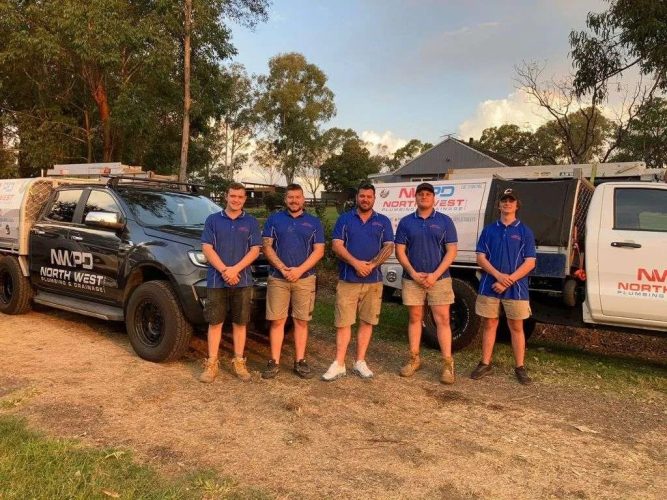I have an emergency plumbing situation! What should I do?
Almost everyone and every home will experience a plumbing emergency at some point. Knowing how to handle a plumbing emergency will give you the power to protect your home while also allowing you to get a repair service to arrive much faster. Emergency plumbing services in Windsor are your best line of defence against property damage, and they can handle almost any situation. Don’t get yourself into too much trouble! Seek the appropriate assistance as soon as possible.
It’s critical to take the proper steps if you come home to find a few inches of water on the floor, a leak in the ceiling, or a soggy piece of drywall that’s fallen to the floor.
· Steps to Take in a Plumbing Emergency:
Plumbing emergencies can cause panic, but keeping your cool can help you limit the damage to your home. The steps below will assist you in dealing with a plumbing emergency, but remember to call a plumber at all times. The safest thing for your home is to have a 24/7 emergency plumbing team in Windsor just a phone call away. We also suggest adding your plumber’s phone number to a contact list so you can find it quickly when you need it.
Here are plumbing emergency tips to help you get through a situation:
1. Turn off the water:
Whenever an emergency strikes, turn off the closest water source as quickly as you can. This can be as simple as turning the valve at the base or behind your commode in the case of toilets. Turn off the main valve in your home in case of a larger emergency or flooding. Most water valves must be turned clockwise to be switched off.
2. Check your water heater:
It’s a good idea to turn off your water heater in a major emergency to avoid damage to the unit. After the main valve is shut off, turn off the heater to prevent heat from building up inside it, which could cause it to burst or overheat. Always turn off the gas first if you have a gas water heater.
3. Tackle small leaks:
If you come across a small leak that is easy to spot, try to stop it as soon as possible. This task will be much easier if you keep some plumber’s tape in your toolbox. To prevent further damage, wrap rags and towels around pipes and place buckets under dripping leaks. Make a note of these leaks and inform the plumbers as soon as they arrive — this is an excellent way to ensure that your issues are dealt with in the safest manner possible.
4. Open drains and spigots:
Even if the main water valve is turned off, there will still be water in your pipes. By turning on any spigots outside your home, you can divert the water away from your home and potentially damaged areas. Make a few squirts with the garden hose to make sure there’s no water left. If a small clog or backup occurs during this process, use gentle methods such as a plunger to clear the drain. During an emergency, don’t use any chemical cleaners in your pipes because they may cause more damage before your plumber arrives.
5. Call and listen:
During an emergency plumbing situation in Windsor, people frequently forget to call a plumber. By calling as soon as possible, you can mitigate a lot of potential damage. The best part about calling early is that you’ll get some immediate assistance with the problem. When you call, the trained plumbing experts who answer the phone can also tell you if the situation is too dangerous. Please pay attention when a professional or a government official advises you to leave your home during an emergency. It has the potential to save your life.
These suggestions can help you save your home and put you in the right frame of mind to deal with an emergency. The best way to deal with any plumbing situation is to be prepared.
· Plumbing Emergency Examples:
To know what to do in a plumbing emergency in Windsor, you must first understand what constitutes an emergency. The best rule of thumb is to call a plumber if you notice water damage from an unknown source or if you have a plumbing problem that you aren’t sure how to solve.
1. Extremely Hot Water:
Everyone enjoys a warm shower, but no one wants to get burned. You have a water heater problem if the water coming out of your showerhead or sink is steaming or hot enough to burn you. This usually indicates that your water heater has overheated. Turn off your water heater in this situation. If you can do so safely, you can also turn on the hot water taps throughout your home. The hot water will be drained and replaced with cold water. To assess the situation, contact a technician.
2. Faucet Drips:
While leaking faucets are inconvenient, they are usually not an emergency. Using a wrench on the shut-off valve on a drip can quickly turn it into a full-blown leak. When there are minor leaks, turn off the water using only your hands. Wrenches can break valves and even get them stuck in an open positive.
If you can’t turn off the faucet’s valve by hand, you should turn off the water in your home. Examine the faucet after the water has been turned off. It’s safe to attempt a repair if you’re familiar with the faucet and its inner workings. To avoid a true plumbing emergency, call a plumber if you’re not sure what you’re doing.
There are several things you can do to help protect your home, but there’s no guarantee you’ll never face an emergency. When you have a problem that you can’t solve on your own or an emergency that makes your home unsafe, call a local professional plumbing service for assistance and a quick fix. In the event of a plumbing emergency, plumbers know what to do and can begin the repair process right away.

Jai Simons
Jai is a fully licenced plumber and the owner of North West Plumbing and Drainage. If you need to fix a water leak or unblock a drain, give Jai a call.
Related
About Us

North West Plumbing delivers old-fashioned customer service to our community. We treat our clients the way we would want to be treated – with respect and honesty. All of our services are performed with your best interests in mind. There is no job too small or too tough for us to handle.

